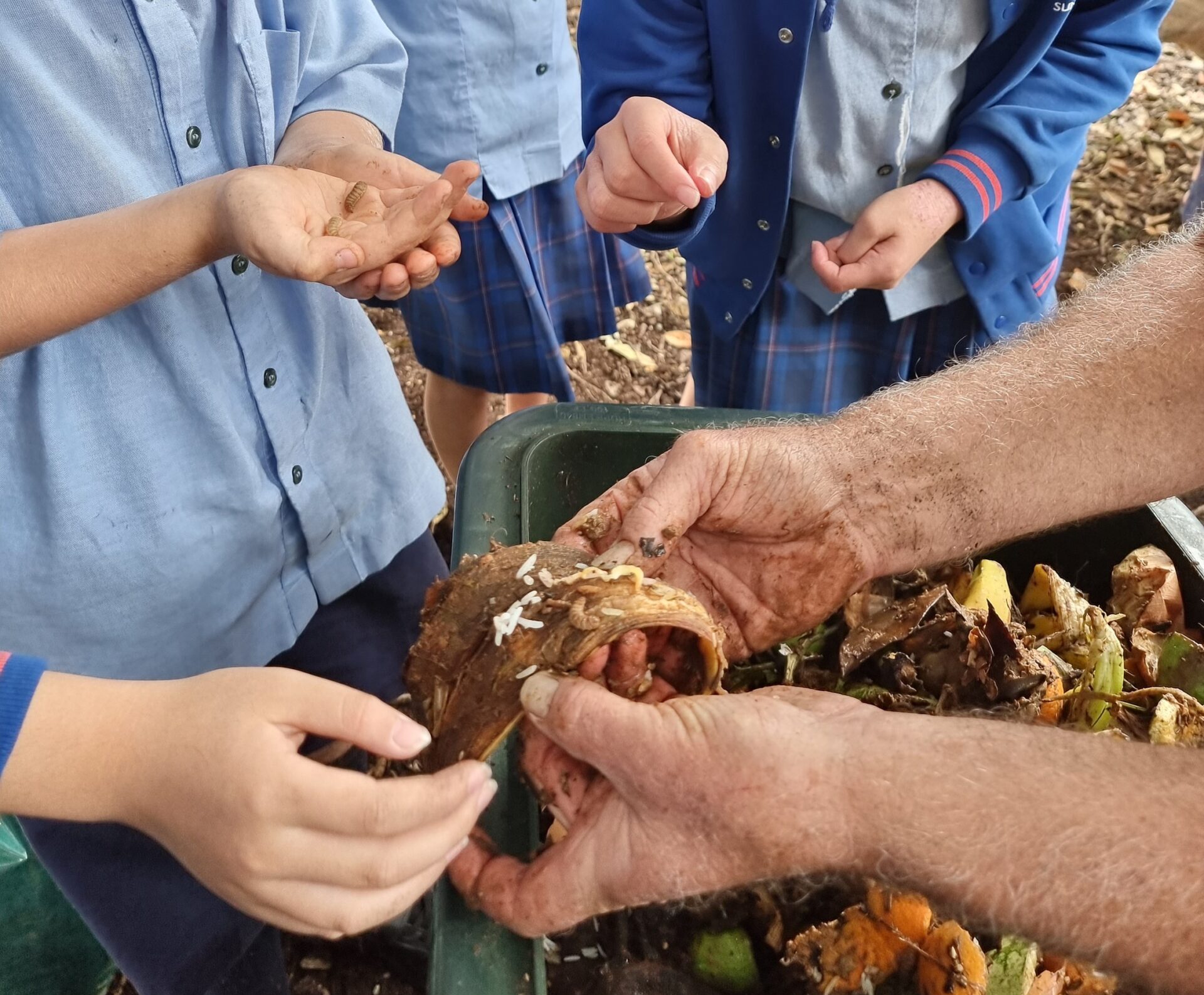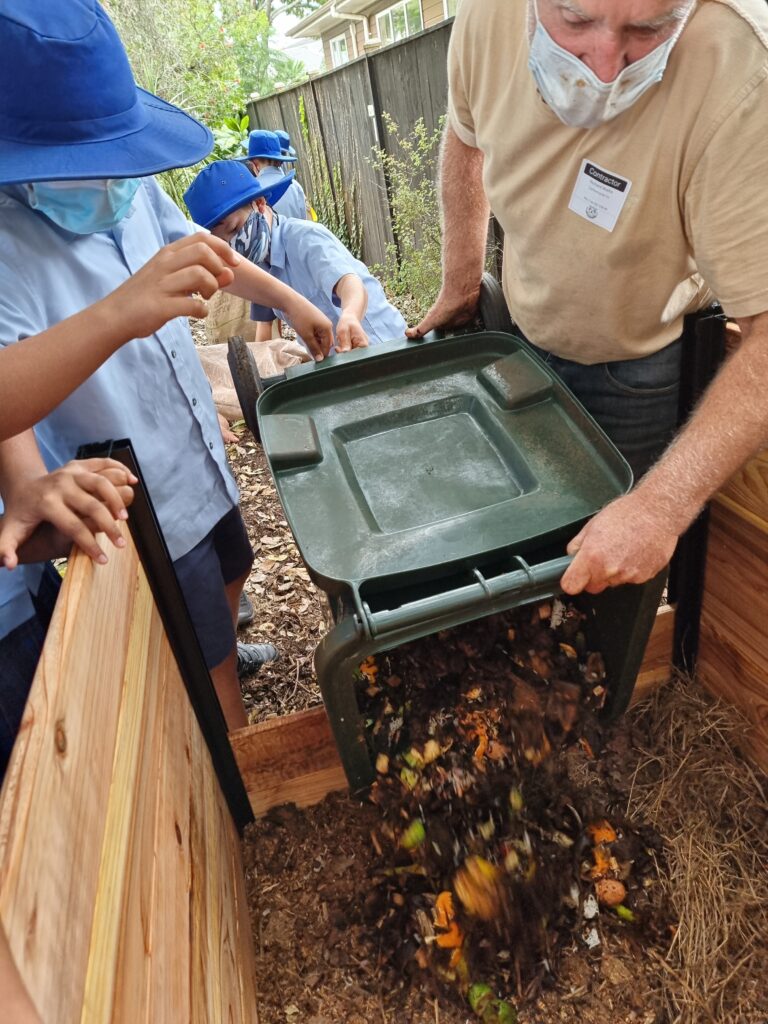

Image Supplied by The CarbonCycle Company
Nine-year-old Nico successfully persuaded Unilever to remove plastic scoops from its
Surf washing powder, thereby eliminating 15 tonnes of plastic from the system.
He now seeks the help of the Minister of Education to put compost bins in every school so that students can recycle nutrients into the soil, grow healthier vegetables, harvest, cook and share fresh kai, and learn about the importance of compost.


It’s an idea that worth thinking about, particularly as it is becoming increasingly apparent that the world is in a persistent cycle of drought, floods, deforestation, soil erosion, land degradation, heat waves, heat domes,soaring temperatures, disruption of precipitation patterns, extreme weather events,forest fires, crop failures, and alarming food shortages.
New Zealand is not exempt from this crisis.
The cost of fruit and vegetables, essential for a healthy diet, has increased year on year by 17% for the last three years and shows no sign of abating. Food is becoming unaffordable. It is driving communities into hunger and poverty.
From a purely pragmatic point of view it makes some sense that we teach children in schools across the board the “hands on” skills of gathering organic residues available in every community (otherwise referred to as food and green “waste”) to make high quality compost with which to grow significant volumes of fruit and vegetables for local consumption.
Food produced by means of conventional agriculture using synthetic fertilisers and biocides accounts for somewhere between 25-35% of anthropogenic GHG emissions. It is reputed to diminish soil biology and destroy porous soil carbon structure resulting in compaction which is the chief cause of the land degradation crisis referred to above.
Urban food growing using compost and soil biology for fertility progressively draws down CO2 and builds porous soil carbon structure which, unlike the compacted surfaces associated with conventional agriculture, absorbs, stores and cycles water for more resilient photosynthesis.
Scientists are now beginning to realise that these contrasting land uses have significant implications for global warming: vegetation that grows in a way that generates porous soil carbon structure and absorbs water has the capacity for cooling transpiration and in turn generates precipitation, whereas compacted or bare soil will have a heating drying effect and the difference is all down to compost and soil biology.
If that’s right, it leads to the conclusion that the temperature regulating function of trees and forests, or any respiring vegetative cover for that matter, is their primary benefit with carbon storage being a secondary consideration, a co-benefit. This is a modification of the current carbon-centric model.
Students at schools that have composting facilities will become familiar with composting and growing food/trees and will know what’s involved in building porous soil carbon structure to generate transpiring cooling landscapes and will be able to measure for themselves the temperature effect.
These are the issues young people have inherited and will have to grapple with. Nico’s proposal will equip them to make informed decisions about how to shape good outcomes.
A new parent portal from the Ministry of Education aimed at engaging parents and whānau…
The announcement of $53 million to cover teachers’ registration and practising certificate fees has been…
Applications for charter school conversion appear to have dried up after strong interest from the…
Will watching the Netflix drama Adolescence help us have hard conversations with young boys and…
Many students lack basic practical life skills like budgeting, letter writing, and preparing for a…
Educators and politicians are trying to address the current teaching shortage through different policy settings.…
This website uses cookies.